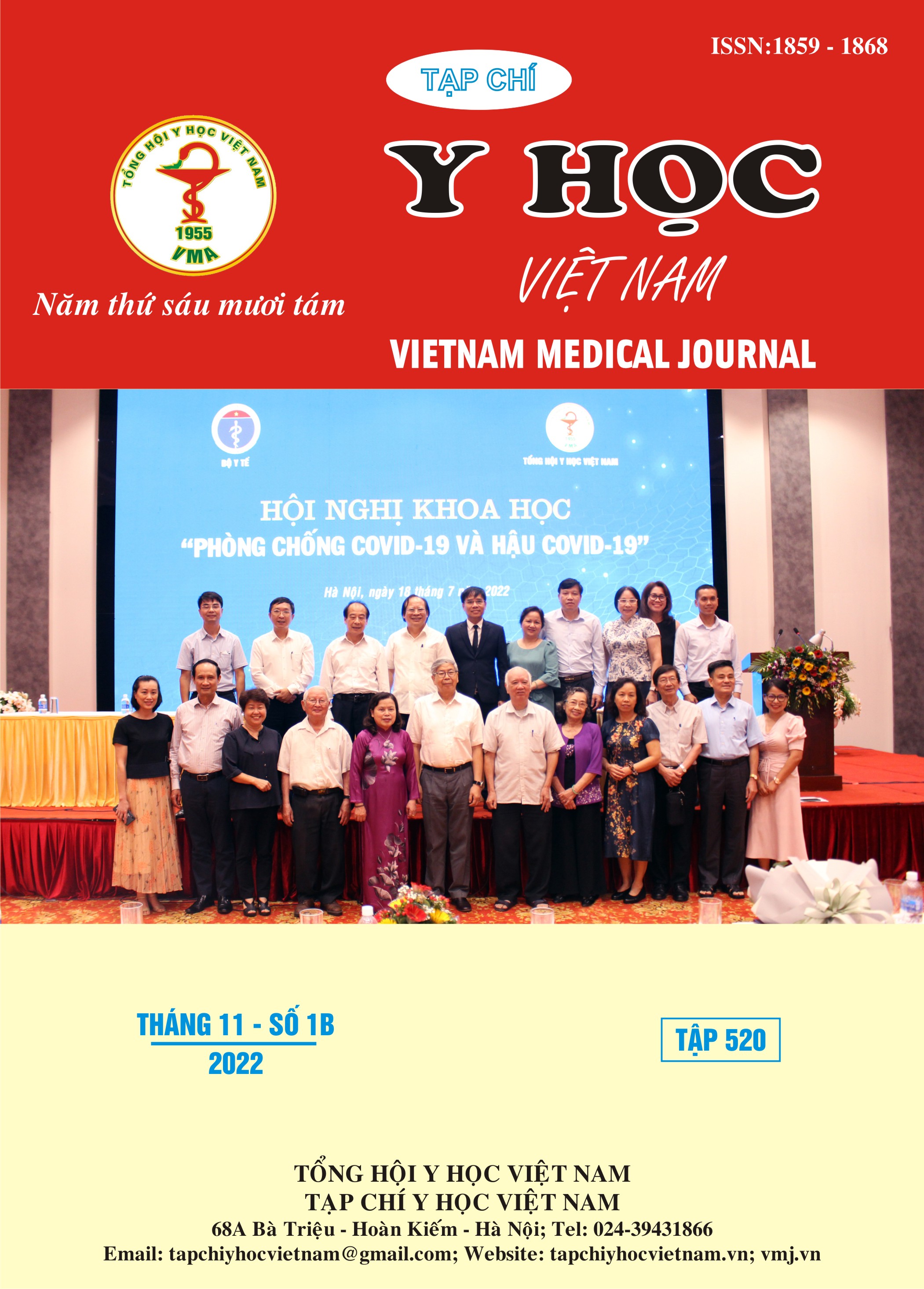DEPRESSION, ANXIETY AND STRESS, AND RELATED FACTORS OF HEALTHCARE WORKERS IN HO CHI MINH CITY
Main Article Content
Abstract
The study aims to assess the prevalence and severity of depression, anxiety, stress, and related factors among health workers in Tan Phu district in 2021 in Ho Chi Minh City. A cross-sectional study was performed between August 2021 to June 2022 on all healthcare workers in Tan Phu district, using the DASS-21 (Depression Anxiety Stress Scales) for assessing depression, anxiety, and stress. A total of 569 health workers completed the questionnaire. The rates of depression, anxiety, and stress were 26.71%, 36.73%, and 19.86%, respectively. Factors related to depression included marital status, group of anti-epidemic days, administrative pressure, support from authorities, and the support of the family; while the concerns related to housing status, personal income, administrative pressure, and family support; Stress-related factors included age group, educational level, administrative pressure, family support, superior's support, and logistics team participation. The mental health of HCWs is an issue that needs to be paid full attention to, especially after the impact of the epidemic. Managers should develop policies to deal with depression, anxiety, and stress issues in healthcare settings.
Article Details
Keywords
Anxiety, depression, stress, health workers, Tan Phu district
References
2. National Institute of Mental Health. Anxiety Disorders. Accessed 7/8/2022, https:// www.nimh.nih.gov/health/topics/anxiety-disorders
3. Tedros Adhanom Ghebreyesus, Christopher J.L. Murray. Findings the from Global Burden of Disease of Disease Study of 2017. The Lancet; 2018:27.
4. Health and Safety Executive. Work related Stress, Anxiety and Depression Statistics in Great Britain 2021. https://www.hse.gov.uk/ statistics/causdis/stress.pdf
5. WHO. Ngày Sức khỏe Tâm thần Thế giới – Một căn bệnh tiềm ẩn. Accessed Truy cập 10/10/2022, https://www.who.int/vietnam/vi/news/detail/09-10-2008-world-mental-health-day-a-hidden-illness
6. Nicola M, Alsafi Z, Sohrabi C, et al. The socio-economic implications of the coronavirus pandemic (COVID-19): A review. Int J Surg. Jun 2020;78:185-193. doi:10.1016/j.ijsu.2020.04.018
7. Viện sức khỏe nghề nghiệp và môi trường. Điều kiện làm việc của nhân viên y tế. Accessed Truy cập ngày 25/8/2021., http://nioeh.org.vn/ tam-sinh-ly-lao-dong-ecgonomi/tong-quan-dieu-kien-lam-viec-cua-nhan-vien-y-te
8. Zai-Quan Dong, Jing Ma, Yan-Ni Hao, et al. The social psychological impact of the COVID-19 pandemic on medical staff in China: A cross-sectional study. Eur Psychiatry. 2020;63(1):1-8.
9. Thach Duc Tran, Tuan Tran, Jane Fisher. Validation of the depression anxiety stress scales (DASS) 21 as a screening instrument for depression and anxiety in a rural community-based cohort of northern Vietnamese women. BMC Psychiatry. 2013;13(24):1-7. doi:10.1186/1471-244X-13-24.
10. Viện sức khỏe tâm thần. Thang đánh giá Lo âu – Trầm cảm – Stress (DASS 21). Accessed 1/10/2022, http://nimh.gov.vn/thang-danh-gia-lo-au-tram-cam-stress-dass-21/


